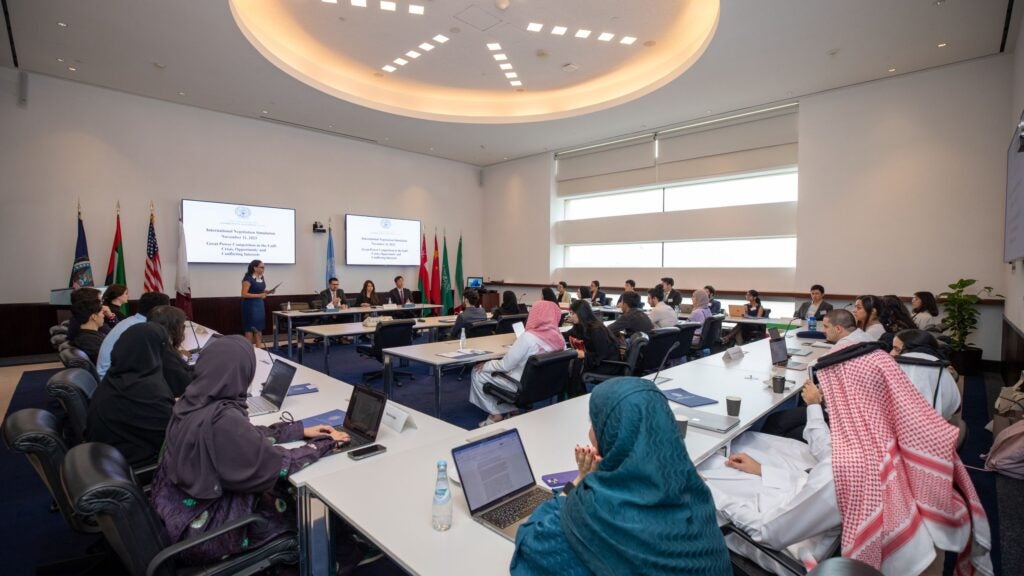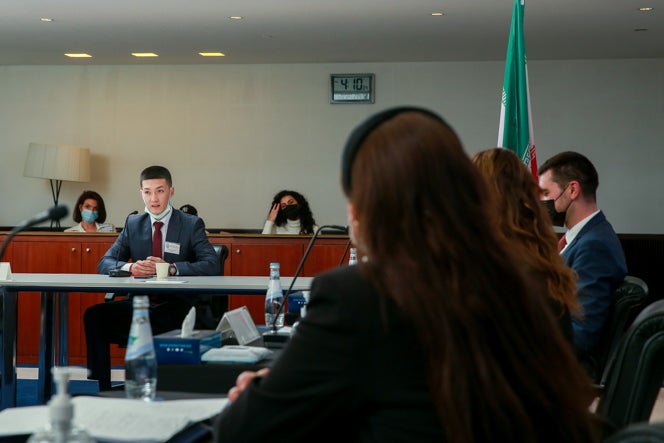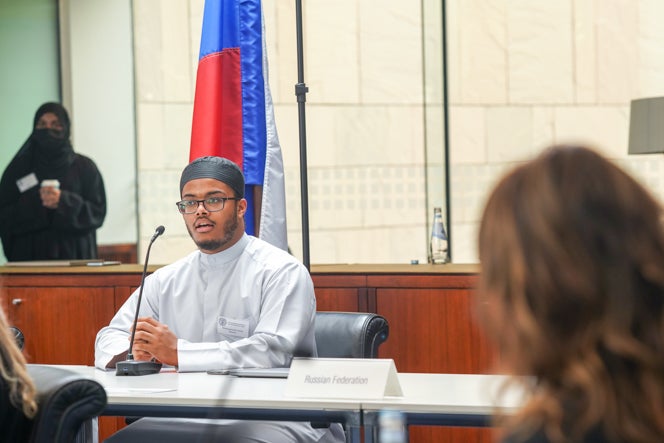International Negotiation and Crisis Simulation



Practicing Diplomacy through Simulations in International Negotiation and Decision-Making
The International Negotiation Simulation Exercise in conjunction with Georgetown University’s Institute for the Study of Diplomacy (ISD) and GU-Q, trains students at campuses in Washington, DC and Doha in negotiations, decision-making and crisis management. This one-day simulation offers students the hands-on opportunity to practice diplomacy through complex international negotiations and real time crisis decision making activities. The simulation exercises are hypothetical situations based on a current international problem, and participants gain experience in high-level diplomatic negotiations between key players. Students are assigned to teams and special guests and faculty mentors lead the exercise. Participants carefully read a background paper and scenario, and then absorb short “confidential” negotiating instructions. The learning objectives are to understand different perspectives, motivations and challenges in grappling with foreign policy issues.
Past Undergraduate Crisis Simulation Topics include:
- Great Power Competition in the Gulf: Crisis, Opportunity, and Conflicting Interests
- The Reconstruction of Afghanistan
- The disputed division of Cyprus
- Conflict in the Straits of Taiwan
- International Health and Humanitarian Crisis in North Korea
- Conflict between Armenia and Azerbaijan over Nagorno-Karabakh
- The Humanitarian Crisis in Syria and the Negotiation of Peace for Syria
- Civil War and Humanitarian Crisis in the Democratic Republic of Congo
About the Credit Bearing Course
IPOL 354-70 International Negotiation Lab (1 credit)
Students have the option to earn academic credit for both this one-day exercise and additional academic components connected to the negotiation lab. This experiential learning simulation is usually offered in the fall semester. The class is graded pass / fail and appears on the Georgetown transcript.
This course is designed to engage students in the study of diplomacy and negotiation using theory and practice.
Course Learning Goals
- To learn the theory behind negotiation both historically and currently and to successfully engage in the practice of negotiation.
- To gain in-depth and practical knowledge on a particular and current crisis and its underlying political dynamics.
- To learn to write short policy briefs based on the results of the simulation.
- To provide students, through targeted readings and assignments, the tools necessary to engage in negotiation in the future.
- To engage with other students in collaborative learning.
How to Register
Students who want to take the class for academic credit must register for the course (IPOL 354-70) by the last day of add/drop for the semester in which the simulation is offered (usually the fall semester). Students who want to take the course without academic credit must respond to the invitation that will go out toward the beginning of the semester. Space is limited, so students are encouraged to register early!